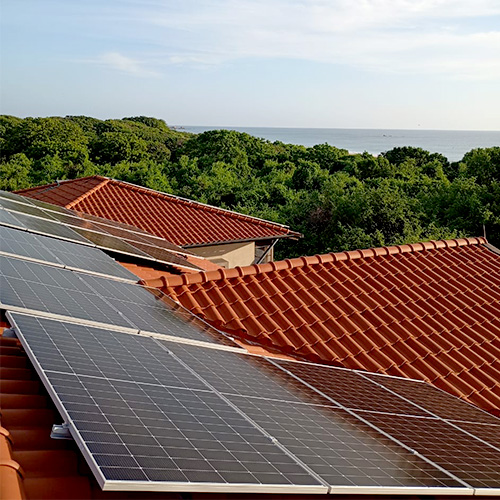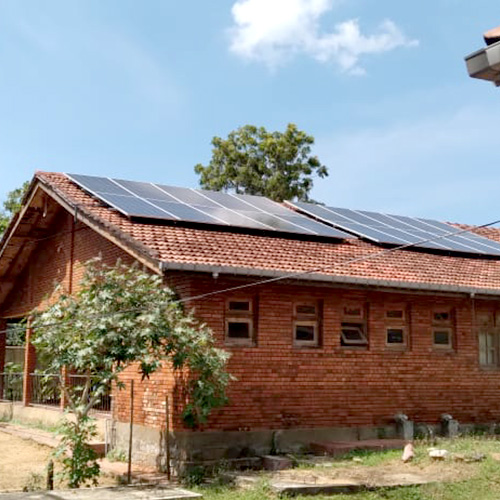Residential Solar Electricity Systems


Pioneers In The Sri Lanka Solar Industry
Residential Solar Electricity Systems
Residential solar electricity systems, also known as residential solar power systems or residential photovoltaic (PV) systems, are installations designed to generate electricity from sunlight for use in homes. These systems typically consist of solar panels mounted on the roof, inverters to convert the DC power generated by the solar panels into AC power usable by household appliances.
Offering the BEST over 20 years of Experience
Being the renewable energy partner of more than thousands of clients, we have been specialized in offering the best quality solar modules and world class serv
MARKET LEADER with Thousands of installations across the country
As the leading Renewable Energy Company, we are striving towards the most innovative solutions provider in the region.
Unmatched AFTER SALES SERVICE by a well experienced professional work force
The combination of local manufacturing, engineering excellence and alliances with reputed suppliers allow us to provide the best after sales service for all round satisfaction.
Breakdown of the components
01.
Solar Panels
These panels are made up of photovoltaic cells that convert sunlight into electricity. They come in various sizes and types, with monocrystalline and polycrystalline being the most common.
02.
Inverters
Solar panels produce direct current (DC) electricity, but most household appliances operate on alternating current (AC). Inverters convert the DC electricity from the solar panels into AC electricity that can be used to power appliances in your home.
03.
Mounting Systems
Solar panels need to be securely mounted to your roof or the ground. The mounting system provides support and ensures that the panels are positioned optimally to capture sunlight.
04.
Electrical Wiring and Components
This includes wiring to connect the solar panels to the inverter, as well as other electrical components necessary for the system’s operation, such as disconnect switches and meters.
Residential solar electricity systems offer several benefits, including:
Reduced Electricity Bills
By generating your own electricity from sunlight, you can reduce your reliance on the grid and lower your electricity bills.
Environmentally Friendly
Solar energy is a renewable resource that produces no greenhouse gas emissions or air pollutants during operation, making it environmentally friendly compared to traditional fossil fuels.
Energy Independence
Solar power gives homeowners greater control over their energy supply, reducing dependence on utility companies and fluctuating energy prices.
Net Metering Schemes
NET METERING
The electricity bill will be prepared giving credit to the export, and charging the consumer for the difference between the import and the export. If the export is more than the import in any billing period, the Consumer will receive an export credit, and will be credited towards his next month’s consumption. Such credits may be carried-over to subsequent months, as long as there is no change in the legal consumer for the premises.
NET ACCOUNTING
This Scheme has introduced an additional element to the Scheme 01 where an export tariff for the net energy exported (if any) was introduced. If the generated units of electricity using the solar panels fixed in the roof are greater than the units consumed, the customer will be paid a fixed rate of Rs.37 per unit. There is also a variable rate introduced by the government. If the consumption is greater than the energy generated form the solar panels, consumer has to pay to the CEB at the existing electricity tariff for the excess energy consumed.
